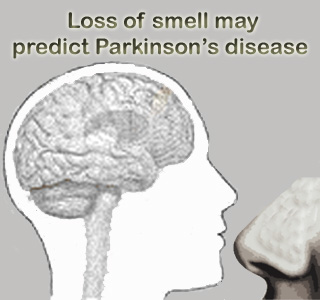
The researchers of Northwestern Memorial Hospital and Northwestern University’s Feinberg School of Medicine became a part of the national study conducted on this criterion. Northwestern is the only center in Illinois to participate in the Parkinson’s Associated Risk Study (PARS), which is said to be the largest long-term U.S. study on the relatives of Parkinson’s disease patients.
Premature aging of dopamine-producing brain cells give birth to Parkinson’s disease. An estimated one million are believed to be affected by this disease. It is also said that the disease detection and diagnosis takes place usually at a time when the patient has already gone through about a 60 percent loss of dopamine-producing brain cells.
Tanya Simuni, MD, director of Northwestern’s Parkinson’s Disease and Movement Disorders Center, says that, “Very little is known about the early stages of this disease. By utilizing smell testing in conjunction with other tests, we hope to develop a system that identifies the presence of Parkinson’s before it develops into problematic symptoms.â€
An analysis of around 7,500 relatives of Parkinson’s disease patients is been conducted by PARS. They state that first-degree relatives of these patient’s have a slightly higher chance of acquiring this disease, as compared to others. PARS has evaluated only older relatives for this study, since the development of this disease is mainly influenced with increasing age.
Simuni says that this study may prove to provide additional knowledge about the initial stages of Parkinson’s disease, and may prove to be beneficial for the next generation. Simuni hopes that in future, early detection and diagnosis of the disease, plus neuro-protective therapy may aid in reducing the speed with which the disease grows or maybe even prevent any further growth of the disease in an individual.
